by/di Luigi Amedeo Bianchi
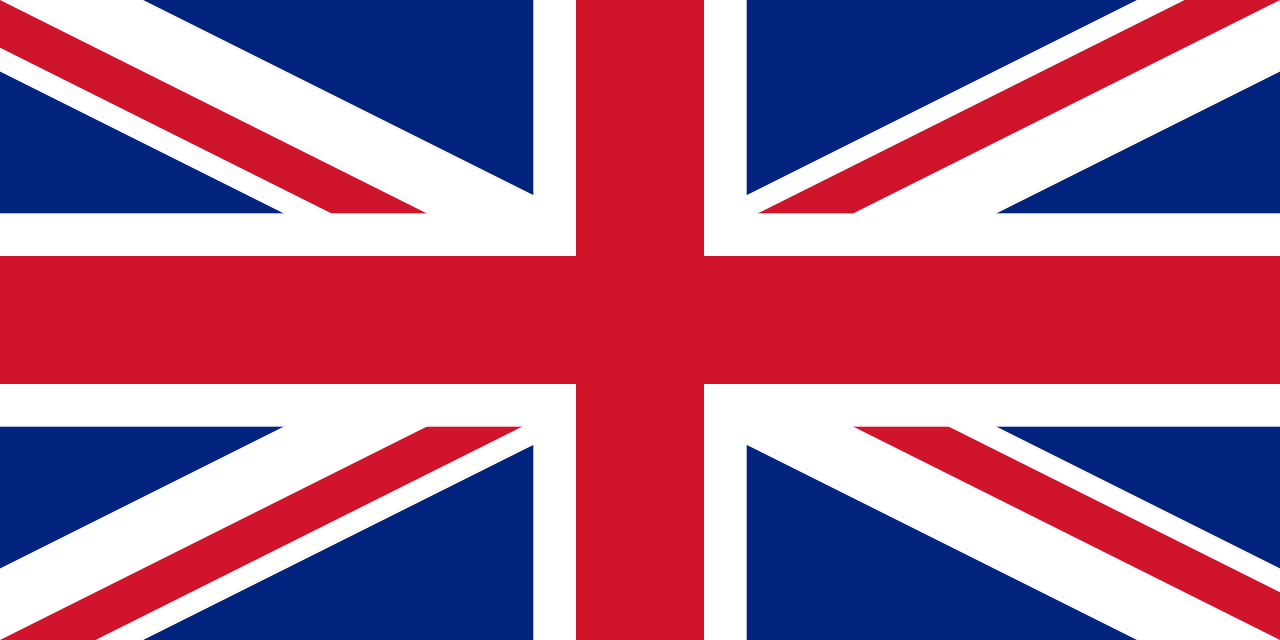 English version below / Vai alla versione italiana
English version below / Vai alla versione italiana
The holidays are approaching fast and all around us gift lists are showing up: it’s time for all of us from the EGMO 2018 website to step up to the challenge and produce our own!
We’ve curated for you a list of books that we like and that we think a fellow lover of maths may enjoy as well. Those are not necessarily maths books: some are about maths, some feature mathematical ideas and personalities, and some… well, the connection with maths may very well be a fruit of our imagination!
We hope this list will help you find a present for the maths enthusiast in your life (but be careful: many of these are classics that they might already own, so make sure you snoop around their library first!), or — why not — provide some inspiration for your own wish list.
Most of these books we would suggest for readers of high school age or older, but of course any age indication is highly debatable. Last disclaimer: naturally, a lot of books we love did not make it into this list. Did we miss some that you’re excited to read, or that you’ve read and fallen in love with? Do share your own suggestions on our facebook page, or tweet them at us with the hashtag #EGMOBooks!
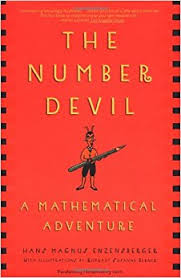
The Number Devil by Hans Magnus Enzensberger (Der Zahlenteufel)
The whole team here at egmo2018.org reached a consensus on this one. Each one of us read it and found it influential in our getting closer to maths. It is suitable for kids from 10 years on, but is still pleasant for older people, even mathematicians. It does a great job in showing that you should not fear mathematics, quite the opposite: you can have a lot of fun playing with numbers. And this is a message we cannot but relate to.
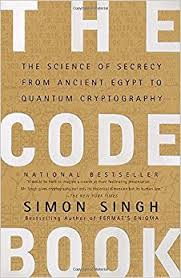
The Code Book: The Science of Secrecy from Ancient Egypt to Quantum Cryptography by Simon Singh
By telling the history of cryptography it presents some history of mathematics, too, as well as some of the great people who played a role in the cryptographical warfare. In the last chapters, regarding contemporary cryptography, it becomes clear that mathematics is a crucial ingredient.
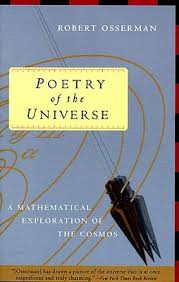
Poetry of the Universe by Robert Osserman
This book presents some mathematical ideas throughout history, with a focus on how they changed the way we see our Universe. I remember reading it one summer when I was in high school and pestering all my relatives because I wanted to understand what limits were, as they were cited in a note to properly understand curvature.
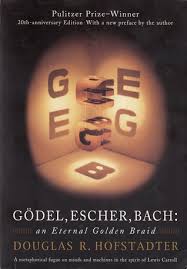
Gödel, Escher and Bach: an Eternal Golden Braid by Douglas Hofstadter
It is a collection of dialogues, in Plato’s style, dealing with logic, mathematics, philosophy, music, neuroscience and much more. Tough but rewarding. Writing about it makes me want to read it again. I wonder how different it will be today, compared to fifteen years ago.
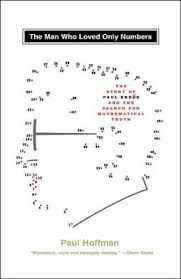
The man who loved only numbers by Paul Hoffman
This book mixes the biography of Paul Erdős, a gread Hungarian mathematician with the presentation of some of the topics he was active in. A great way of presenting mathematics as a joint effort (unlike for example Andrew Wiles’ tackling Fermat’s last theorem by himself, as presented in Simon Singh’s Fermat’s Last Theorem).
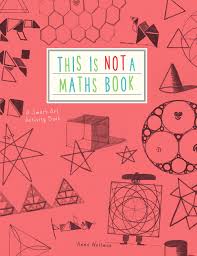
This is Not a Maths Book: A Smart Art Activity Book by Anna Weltman
A hands-on take on math, trying to show how much mathematics is there in art, and how much art and beauty play a role in mathematics. It is only available in English, and it should be fine for anyone from 8-10 years onwards. There is also a follow-up which came out this year.
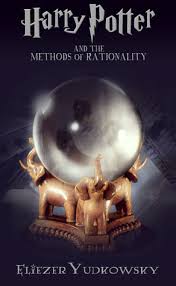
Harry Potter and the Methods of Rationality by Eliezer Yudkowski
It is a fanfiction set in the world created by J. K. Rowling, with a starting twist, since Harry James Potter-Evans-Verres is the adopted only son of his biological aunt Petunia and her husband, Oxford University Professor Michael Verres-Evans. He is not mistreated at all, and he is trained by his family in the methods of science and rational thinking from a very young age. When he travels to Hogwarts and learns about magic, he tries to address it with the knowledge he was provided by his parents. There is no explicit mathematics, but it is a great way of presenting the scientific and rationality methods and it stimulates the reader to go and look up the mentioned concepts. It is freely available online.
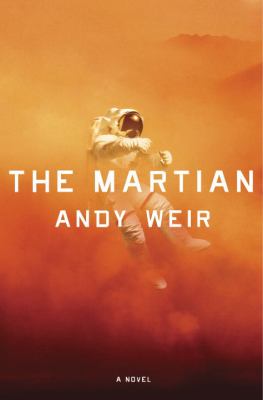
The Martian by Andy Weir
I see this book as a modern version of Robinson Crusoe (or The Mysterious Island, by Jules Verne, a bonus suggestion), where an astronaut stranded on Mars uses science, technology and problem solving abilities to overcome the obstacles he is confronted with. In this book I really appreciated that there is no solution that does not give rise to new problems, stressing that problem solving,at least in real life, is a continuous, unending process.
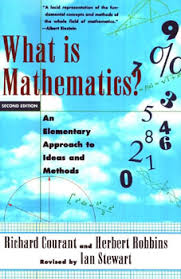
What is Mathematics? by Richard Courant and Herbert Robbins
A lot of us read it, as it was a standard present for good results in the Italian Mathematical Olympiads. It gives a nice introduction to some concepts of advanced mathematics, usually presented in such a way as to foster curiosity and pushing the reader to look out for more real mathematics.
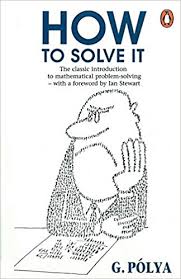
How to solve it by George Pólya
It is a book about problem solving, discussing the strategy behind it. My favourite of the four principles (Understand the problem, Devise a plan, Carry out the plan, Review) is the last one: when you get to the end of the solving process you should first of all check that what you got is meaningful and, moreover, try to figure out why your strategy worked and how can you extend it to other problems. Though meant for mathematical problems, Pólya’s heuristics really works for any kind of problem solving.
Bonus: Anything by Martin Gardner, a giant of recreational mathematics. Each one of his books contains mathematical gems!
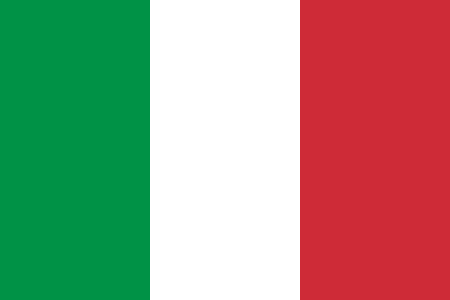 Versione italiana a seguire / Back to English
Versione italiana a seguire / Back to English
Le vacanze si avvicinano a tutta velocità e ovunque attorno a noi spuntano liste di regali. Anche se siamo un sito abbastanza giovane, è forse una scusa sufficiente per non uniformarci? Quindi ecco qui la nostra lista di libri: pensiamo possano essere interessanti per tutti coloro che hanno almeno un po’ di passione per la matematica (o che la vogliono far sbocciare). Non tutti i libri sono di matematica in senso stretto: alcuni sì, ma altri sono solo vagamente collegati. O forse semplicemente ci piacciono e vediamo in loro un sapore matematico in realtà inesistente.
Questa lista può essere d’aiuto per trovare un bel regalo per qualcuno interessato alla matematica, anche se bisogna prima controllare che non abbia già alcuni di questi libri. Può essere anche d’aiuto per suggerire a qualcuno un regalo che si desidera ricevere, o anche solo per avere qualcosa da leggere nelle lunghe serate invernali.
Quasi tutti questi libri, salvo diversamente indicato, sono pensati per lettori dalle scuole superiori in poi, anche se sappiamo bene che una simile classificazione è molto discutibile. Un’ultima premessa: come sempre quando si prepara una lista o si fa una selezione, molti libri che amiamo non compaiono in questa lista. Se avete in mente una lista migliore, o anche solo differente, condividetela sulla nostra pagina Facebook e fateci sapere quali sono i vostri libri preferiti tra quelli più o meno legati alla matematica.
Buona lettura!
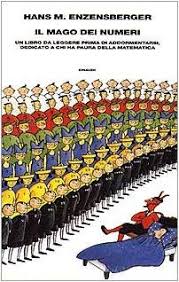
Il mago dei numeri di Hans Magnus Enzensberger (Der Zahlenteufel)
Questo libro ha messo d’accordo tutti, qui nella redazione di egmo2018.org. Ciascuno di noi lo ha letto e ne è stato influenzato nell’avvicinarsi alla matematica. È adatto dai 10 anni in su, ma è gradevole anche per i più grandi, anche per i matematici. Il suo punto di forza è il mostrare che non si deve aver paura della matematica, anzi, ci si può divertire moltissimo a giocare con i numeri. E questo è un messaggio che non possiamo che sottoscrivere pienamente.
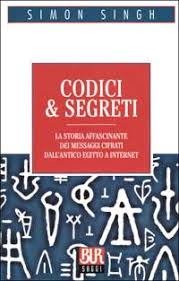
Codici e segreti. La storia affascinante dei messaggi cifrati dall'antico Egitto a Internet di Simon Singh
Nel raccontare la storia della crittografia introduce anche un po’ di storia della matematica, così come molti grandi nomi che hanno giocato un ruolo nella corsa agli armamenti crittografici. Negli ultimi capitoli, dedicati alla crittografia contemporanea, è chiaro come la matematica sia ormai indispensabile in ambito crittografico.
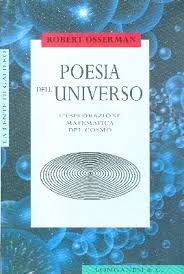
Poesia dell’Universo di Robert Osserman
Questo libro introduce alcune idee matematiche comparse nel corso della storia, ponendo l’accento sul come abbiano cambiato la nostra percezione dell’Universo che ci circonda. Ricordo di averlo letto in un’estate quando ancora andavo alle superiori e di aver tormentato la mia famiglia al completo, alla ricerca di qualcuno che mi spiegasse il concetto di limite, dal momento che era citato in una nota per comprendere appieno la curvatura.
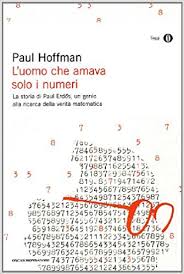
L’uomo che amava solo i numeri di Paul Hoffman
Questo libro è una biografia di Paul Erdős, un grande matematico ungherese, che affianca al resoconto della sua vita un’introduzione molto amichevole ad alcuni ambiti della matematica nei quali Erdős era attivo. La cosa che amo di più in questo libro è che la ricerca matematica è presentata come un’opera collettiva e sociale (a differenza, ad esempio, della sfida solitaria di Andrew Wiles all’ultimo teorema di Fermat, raccontata ad esempio ne Il teorema di Fermat di Simon Singh).

This is Not a Maths Book: A Smart Art Activity Book di Anna Weltman
Un libro di disegni guidati sulla matematica, che tenta di mostrare quanta matematica sia nell’arte e, viceversa, quanto l’arte e la bellezza abbiano un ruolo nella matematica. È disponibile solo in inglese, ma dovrebbe essere alla portata dei ragazzi dagli 8-10 anni in su. Quest’anno è uscito anche il seguito.

Harry Potter e i metodi della razionalità di Eliezer Yudkowski
È una fanfiction ambientata nel mondo creato da J. K. Rowling, con una premessa un po’ diversa, visto che Harry James Potter-Evans-Verres è in questo libro il figlio unico adottivo di sua zia Petunia e del marito, il professor Michael Verres-Evans dell’Università di Oxford. Non ha per nulla un’infanzia difficile e viene educato dalla sua famiglia nei metodi della scienza e del pensiero razionale fin da piccolo. Quando arriva a Hogwarts e scopre il mondo della magia, lo affronta con gli strumenti della sua educazione. La matematica non compare esplicitamente, ma questo libro è un’ottimo modo di presentare i metodi della scienza e della razionalità e invoglia il lettore ad andare ad approfondire i concetti alle volte solo menzionati. È liberamente disponibile online.
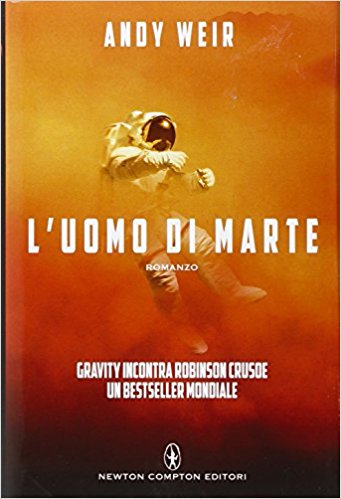
L’uomo di Marte di Andy Weir
Per me questo libro è una versione moderna di Robinson Crusoe (o meglio de L’Isola misteriosa di Jules Verne, suggerimento bonus), in cui un astronauta abbandonato su Marte usa scienza, tecnologia e, soprattutto, la sua abilità nel risolvere problemi per superare le difficoltà che volta per volta gli si presentano. In questo libro mi è piaciuto particolarmente che non esiste alcuna soluzione che non faccia sorgere nuovi problemi, a sottolineare che il problem solving, almeno nella vita reale, è un processo continuo, senza fine.
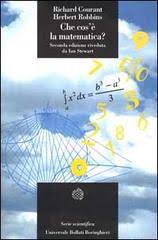
Che cos’è la matematica? di Richard Courant e Herbert Robbins
Molti di noi in redazione l’hanno letto, anche perché era (ed è ancora) uno dei regali standard per i buoni risultati alle Olimpiadi di matematica. Dà una buona introduzione ad alcuni concetti di matematica “avanzata”, presentati solitamente in modo da stimolare la curiosità del lettore e spingerlo ad esplorare altra matematica non scolastica.
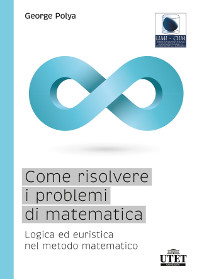
Come risolvere i problemi di matematica di George Pólya
Non è un libro di problem solving, ma sul problem solving, per cui presenta una strategia, discutendola in modo approfondito. Dei quattro principi di base (Capire il problema, Sviluppare un piano, Portare a termine il piano, Rivedere) il mio preferito è l’ultimo: una volta arrivati alla fine della risoluzione si dovrebbe innanzitutto controllare che quanto si è ottenuto abbia senso, ma anche cercare di capire a fondo perché la strategia risolutiva abbia funzionato e come possa essere estesa ad altri problemi. Anche se pensata e presentata per problemi di matematica, l’euristica di Pólya funziona per qualunque tipo di problem solving.
Bonus: Qualunque cosa di Martin Gardner, un gigante della matematica ricreativa. Ciascuno dei suoi libri contiene gemme di matematica.
![]() English version below / Vai alla versione italiana
English version below / Vai alla versione italiana![]() Versione italiana a seguire / Back to English
Versione italiana a seguire / Back to English















